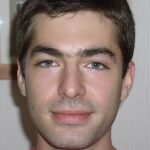Link to Pubmed [PMID] – 24140878
Prog. Neuropsychopharmacol. Biol. Psychiatry 2014 Jul;52:86-93
Tobacco produces an impressive burden of disease resulting in premature death in half of users. Despite effective smoking cessation medications (nicotine replacement therapies, bupropion and varenicline), there is a very high rate of relapse following quit attempts. The use of efficient strategies for the development of novel treatments is a necessity. A ‘bench to bedside strategy’ was initially used to develop cannabinoid CB1 receptor antagonists for the treatment of nicotine addiction. Unfortunately, after being tested on experimental animals, what seemed to be an interesting approach for the treatment of nicotine addiction resulted in serious unwanted side effects when tested in humans. Current research is focusing again on pre-clinical models in an effort to eliminate unwanted side effects while preserving the initially observed efficacy. A ‘bed side to bench strategy’ was used to study the role of the insula (part of the frontal cortex) in nicotine addiction. This line of research started based on clinical observations that patients suffering stroke-induced lesions to the insula showed a greater likelihood to report immediate smoking cessation without craving or relapse. Subsequently, animal models of addiction are used to explore the role of insula in addiction. Due to the inherent limitations existing in clinical versus preclinical studies, the possibility of close interaction between both models seems to be critical for the successful development of novel therapeutic strategies for nicotine dependence.

